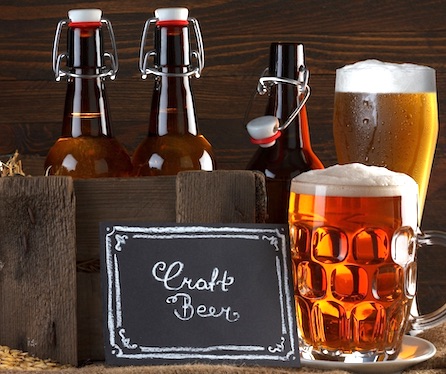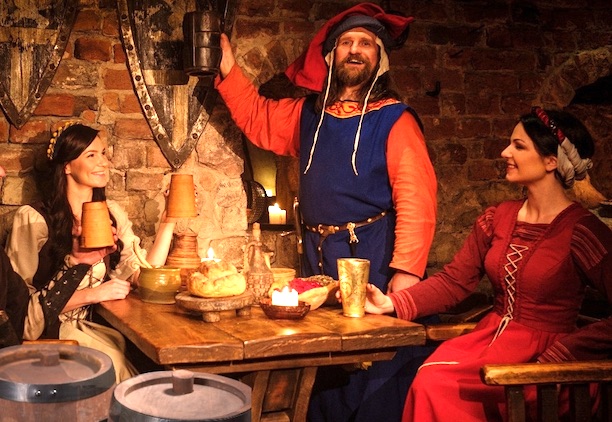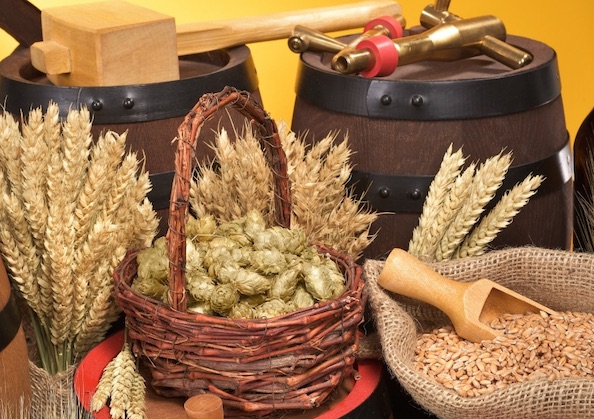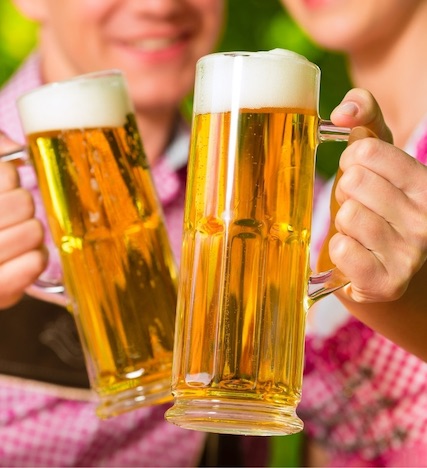Traditions & History Mix With The Modern Beer Lovers’ Tastes

German beer, Germany Purity Law
By Nicola Holly, Special To PubClub.com
Germany is well known for its beers and for its breweries adhering to the strict German Purity Law.
Fortunately, beer is no longer brewed in Germany in the same manner that it was in 1516. There’s no fear that anyone will be experimenting with belladonna cherries for a spicy flavour enhancement! Nor are open fires and wooden vats still used in the brewing process.
But the basic four natural ingredients – water, hops, malt and yeast – are still being used, and modern brewmeisters are having a little fun with their craft by creating some creative beers while also adhering to the strict guidelines of the Purity Law.

The beer law is much more liberal than some people think. There has always been a niche for creations with spices or fruits, for example, which is not a contradiction to being confined to an ancient purity law.
Consider ABK Festbier for example, with its subtle tones of toffee and caramel. It is a taste that will transport any beer connoisseur back to a little town in Germany, wherever it is consumed.
History Of The German Purity Law

In 1325, to assure that only the highest quality beers would continue to be produced in Kaufbeuren, an extraordinary guild called The Kaufbeuren Brewers Guild was established in that Bavarian town.
The guild ruled that all ingredients beyond the basic four were forbidden and the local water used in brewing had to be the purest available. Yet all of this happened nearly 200 years before Duke William IV enacted the Kingdom-wide declaration in 1516 known as ‘Reinheitsgebot’ or German Beer Purity Law.
Then, under the keen watch of legendary genius brewer Zur Traube Güldenen in the 17th century, the Aktien Brewery mastered its recipes that are still used today. It progressed to become one of the original breweries in Bavaria to produce the then ‘banned’ wheat ales. Until that moment, those beers had been brewed exclusively for German royalty.
The Purity Law Is Still In Use Today

But is the ‘Purity Law’ just an ancient forgotten bit of history?
Absolutely not.
German beer is still a natural product based on the accuracy of the 1516 commandment.
Fascinatingly, the basic principles of brewing have not changed. Unlike breweries elsewhere, German brewers are still not permitted to use enzymes, artificial flavours, preservatives, etc. Brewing remains restricted to utilising just four natural ingredients: water, hops, malt and yeast at its nucleus.
A Liberal Beer Law Allowing For Creativity In Taste

The Purity Law is certainly not a one-size-fits-all law.
Reflect on the immense German beer diversity, which is the world’s envy. All credit goes to a brewers’ ability to develop continuously unique beer styles with limited ingredients. Even within the law’s possibilities, great beer flavours have not even begun to be exhausted.
Nevertheless, the purity law is still fundamental to people in Germany. In fact, 85% were in favour of the purity law continuing to exist. Remarkably, the appreciation is particularly high among younger people, 89% of whom support the Purity Law.
Conclusion

In conclusion, the incentive is for versatile brewers, not to rest their laurels on a 500-year-old document and ignore creativity. Rather to fill our beer culture with diversity while keeping the utmost respect for a shielding Purity Law. A law that still protects beer drinkers the world over from contaminants and unwanted chemicals.
About The Author: Nicola Holly is a German beer lover and editor of the beer lovers website abkbrewery.co.uk.
Leave a Reply
You must be logged in to post a comment.